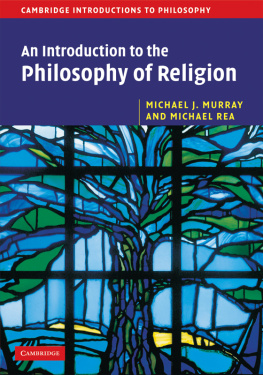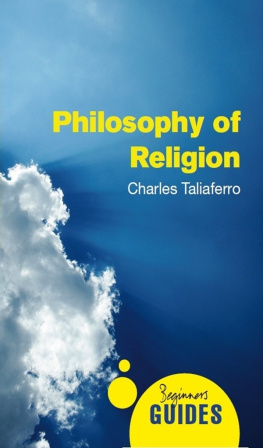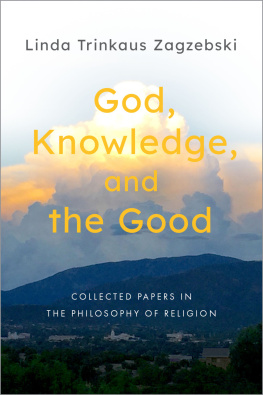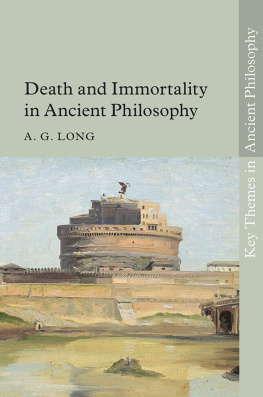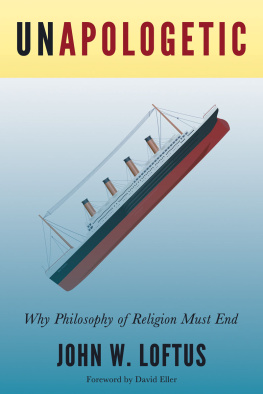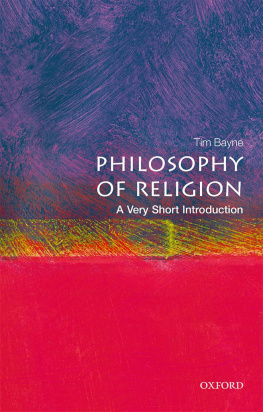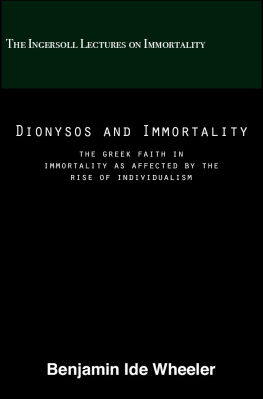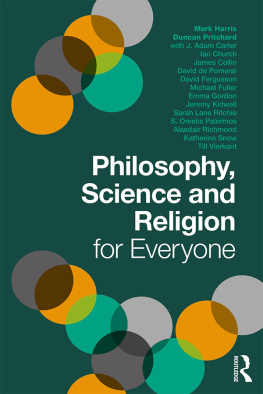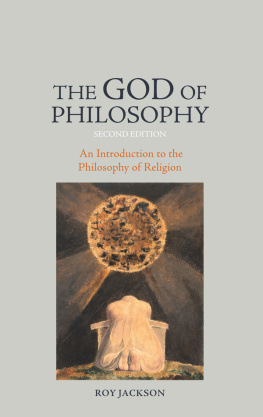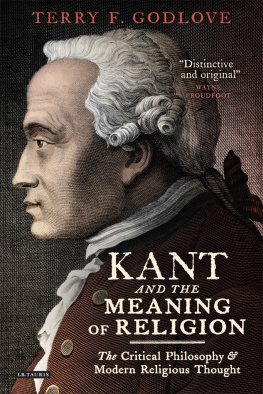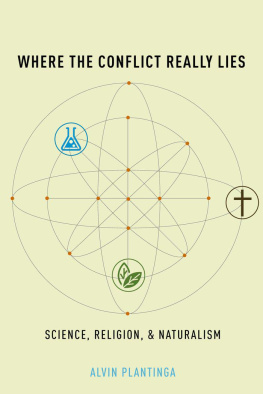An Introduction to the Philosophy of Religion
An Introduction to the Philosophy of Religion provides a broad overview of the topics which are at the forefront of discussion in contemporary philosophy of religion. Prominent views and arguments from both historical and contemporary authors are discussed and analyzed. The book treats all of the central topics in the field, including the coherence of the divine attributes, theistic and atheistic arguments, faith and reason, religion and ethics, miracles, human freedom and divine providence, science and religion, and immortality. In addition it addresses topics of significant importance that similar books often ignore, including the argument for atheism from hiddenness, the coherence of the doctrines of the Trinity and the Incarnation, and the relationship between religion and politics. It will be a valuable accompaniment to undergraduate and introductory graduate-level courses.
MICHAEL J. MURRAY is Arthur and Katherine Shadek Professor in the Humanities and Philosophy, Department of Philosophy, Franklin and Marshall College.
MICHAEL C. REA is Associate Professor and Associate Director, Center for Philosophy of Religion, Department of Philosophy, University of Notre Dame.
An Introduction to the Philosophy of Religion
MICHAEL J. MURRAY
Franklin and Marshall College
and
MICHAEL C. REA
University of Notre Dame


University Printing House, Cambridge CB2 8BS, United Kingdom
Published in the United States of America by Cambridge University Press, New York
Cambridge University Press is part of the University of Cambridge.
It furthers the Universitys mission by disseminating knowledge in the pursuit of education, learning and research at the highest international levels of excellence.
www.cambridge.org
Information on this title: www.cambridge.org/9780521853699
Michael J. Murray and Michael C. Rea 2008
This publication is in copyright. Subject to statutory exception and to the provisions of relevant collective licensing agreements, no reproduction of any part may take place without the written permission of Cambridge University Press.
First published 2008
5th printing 2013
Printed in the United Kingdom by the CPI Group Ltd, Croydon CR0 4YY
A catalogue record for this publication is available from the British Library
ISBN 978-0-521-85369-9 Hardback
ISBN 978-0-521-61955-4 Paperback
Cambridge University Press has no responsibility for the persistence or accuracy of URLs for external or third-party internet websites referred to in this book, and does not guarantee that any content on such websites is, or will remain, accurate or appropriate.
To our families
Kirsten, Samuel, Elise, and Julia
and
Chris, Aaron, and Kris
Contents
Preface
Anyone going to a major university library and searching for books on philosophy of religion would think that this area of philosophy was quite new. By all appearances, it would seem that the philosophy of religion emerged sometime in the middle of the twentieth century, and then blossomed rapidly over the period between then and now. Yet this appearance would be deceiving. Philosophical reflection on religious themes has been a central part of philosophy from the time of its origin to the present. In the Western philosophical tradition this is due at least in part to the fact that most philosophers in the West either have been theists themselves or have written in intellectual climates dominated by theistic presuppositions. Yet while philosophy of religion is not itself new, what is new is the attempt to tease out some of the questions that philosophers raise when discussing religion and to treat them together under a single heading. That is what contemporary philosophers of religion do, and it is what this book aims to do as well.
Some of the issues that philosophers raise when discussing religion are of perennial interest: Is there a God? How could God permit evil? Does morality depend on God in some fashion? And so on. Other questions become more or less important as the discipline of philosophy itself changes and the culture in which this philosophical reflection goes on changes. In this book we try to balance discussion of those central, perennial questions with ones that are just beginning to appear over the horizon. In this way, the text aims to give students access to the long tradition of philosophical reflection in religion, while also acquainting them with where the discipline now stands, and where it seems to be going.
This book opens with a section discussing the nature and attributes of God. We then move to consider questions about the rationality of belief in such a God, as well as a variety of questions about what philosophers in the major religious traditions oriented around belief in this sort of God have said (or ought to say) about science, morality, politics, mind, and immortality. Readers will notice that the focus throughout is on theistic belief that is, belief in the God of the Western monotheistic traditions. Those unaware of the way in which contemporary philosophy of religion in the English-speaking world has developed over the past several decades might find this focus puzzling, or even objectionable. Thus, a few words of explanation are in order.
Religious beliefs and practices have proliferated in virtually every human culture; and the supernatural entities that figure in these religious beliefs (if any) are highly variegated. Some religions hypothesize no supernatural beings at all, either because those things that are the objects of religious devotion, attention, or fear are parts of the natural order itself, or because God is identified with the totality of the natural order, the latter view being known as pantheism. Other religious traditions instead propose that God is a larger whole consisting of a body the physical cosmos in addition to a divine soul that is intimately joined with this cosmic body. This view is known as panentheism. In addition there are myriad versions of polytheism in the history of religion. More familiar to those in the West, however, are religions which argue that there are many supernatural beings (among them, angels and demons) only one of whom counts as God, a supremely perfect or ultimate being who creates and controls all that there is. And there are still more variations. In light of this, it seems that any attempt to provide (in the space that we have been given) a suitably inclusive or comprehensive introduction to philosophical problems associated with the concept of divinity will come at the price of objectionable superficiality.
The best way forward, then, is to restrict our focus somehow. Since the primary goal of this book is to provide a properly representative introduction to the field of philosophy of religion as it has developed in English-speaking countries over the past fifty years, and since that field has been overwhelmingly dominated by questions arising in connection with theism in general and particular doctrines of the three major theistic religions (Judaism, Christianity, and Islam), we have elected to restrict our focus largely to these questions.
Some might regard that choice as unfortunate, thinking that more attention should be devoted to non-Western, non-theistic religious traditions. We agree that more reflection should be devoted to these traditions and, indeed, philosophical work on these topics in English-language philosophy departments is on the rise. But space limitations preclude giving these traditions the full and careful treatment that they would merit. Note, however, that there will be times throughout this book where we will make reference to non-monotheistic religious alternatives when they bear directly on one of the issues we are discussing. Monotheists have, for example, often argued for the truth of monotheism by arguing that it is the only way of making sense of some important evident fact or widely held belief. Sometimes these monotheists seem only to have in view two alternatives: monotheism and atheistic naturalism. But there are going to be many cases where alternative religious traditions would equally well or better explain or make sense of the facts or beliefs in question. In cases like these, we will discuss the relevant alternatives as a way of helping us assess claims that theists make.
Next page
